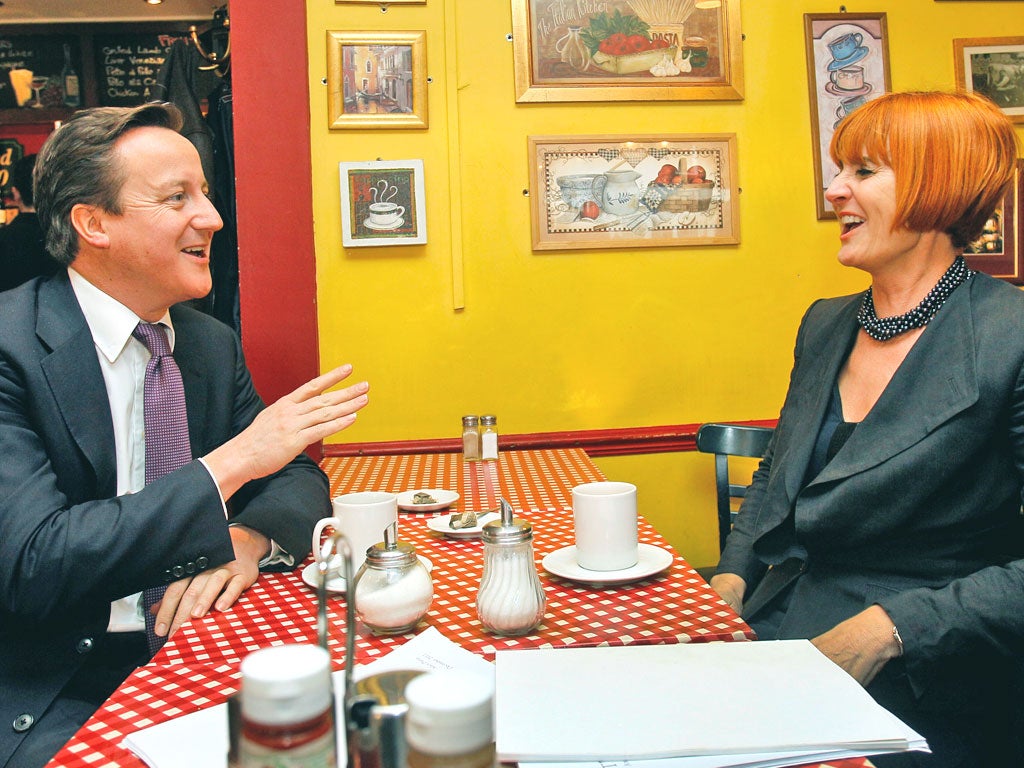Inside Whitehall: Government tsars - what are they good for?
A report shows just how out of control the ministerial use of tsars has become

Quiz time. What do Lord Sugar, Mary Portas and James Caan have in common? Yes, they’re all successful entrepreneurs who are now TV celebrities, but that’s not the answer. Now let’s add Lord Coe, Dame Kelly Holmes and the journalists Will Hutton, Camilla Cavendish and Ian Hargreaves. They also have the same thing in common.
Or perhaps, the businessmen Sir Philip Green, Sir Howard Davies and Sam Laidlaw. And finally a few random names: David Boyle, Sally Coates, Darren Henley, Sebastian James and Cathy Nutbrown.
Give up? The answer is they have all being appointed unelected, unaccountable Government “tsars”: men and women brought in to advise ministers, to devise policy and sometimes to bring a little glamour to the corridors of Whitehall. But a report published today shows just how out of control the ministerial use of tsars has become.
The Coalition has appointed 118 individuals to look at subjects as diverse as police pay, the film industry, palliative care and pensions.
Since 1997, the figure is closer to 300. All these individuals have direct access to ministers and use of Government resources, and are sometimes paid significant sums. They also often have an appreciable influence on future policy.
Why does this matter? Surely it is good for ministers to get expert advice from outside the confines of the civil service. Well, yes, but a quick look at the history of recent tsar appointments shows that they can be problematic.
Take Emma Harrison. She was the founder of the controversial welfare-to-work company A4e. But despite her firm having £200m of contracts to get long-term benefit claimants back into work, David Cameron thought it was a good idea to appoint her “Troubled Families Champion” as well.
A key part of that role – helping to turn round the lives of 5,000 households – was to get parents back into work. And in February 2012 the two roles collided spectacularly. Police announced they were investigating alleged fraud by A4e employees and it emerged that Harrison herself had been paid dividends of £8.6m from the firm.
Over the next few days she was forced to resign from her tsarship, leaving Nick Raynsford to table a pertinent parliamentary question asking what independent checks had been carried out before she was appointed. There has yet to be a substantive response.
Then there is Mary Portas. In May 2011, the retail expert was appointed by the Government to review what could be done to turn round Britain’s declining high streets. A few months later, she published her blueprint and ministers selected 12 so-called Portas Pilots to receive up to £100,000 to finance improvements to their town centres.
But what was less clear was that Portas had been paid £500,000 by Channel 4 for three programmes on the pilots, and Portas’s consultancy had made suggestions to the Department for Communities about which would make good TV.
After sustained criticism of her potential conflict of interest, she told MPs her tsarship should have carried a “health warning” and that “sometimes she wished she had not put her name to it”.
Then there are the accusations that some “tsarships” have been used as a form of political patronage. The former Tory donor Lord Ashcroft was asked to review the MoD’s use of military bases in Cyprus and be the Government’s special representative for veterans. And businessman and Tory donor Adrian Beecroft conducted a highly controversial review of employment law, which some people suggested that, with his private-equity background, he had an interest in watering down.
None of this is an argument for abolishing tsars, but the way the system has developed is a cause for concern. Tsars tend to be recruited from people ministers already know or know of. The majority are male, white and over 50, and many are titled. About half receive fees and/or expenses but the rationale for payment is not clear.
Today a group of academics from King’s College London publishes a three-page code of conduct for tsars. It is not an onerous document but it suggests simple things that would improve transparency and accountability: departments should have an official responsible for drawing up terms of reference for each appointment, including remit, duration, reporting lines and cost. And tsars would have to declare actual or perceived conflicts of interest before they start. There would be a timescale for the work, a general presumption towards publication, and a degree of parliamentary oversight.
None of this is particularly controversial but so far it has received a frosty response from the Cabinet Office. That is misguided. Surely, as David Cameron once famously suggested, it is stupid to wait for the next big scandal when we could prevent it now.

Join our commenting forum
Join thought-provoking conversations, follow other Independent readers and see their replies